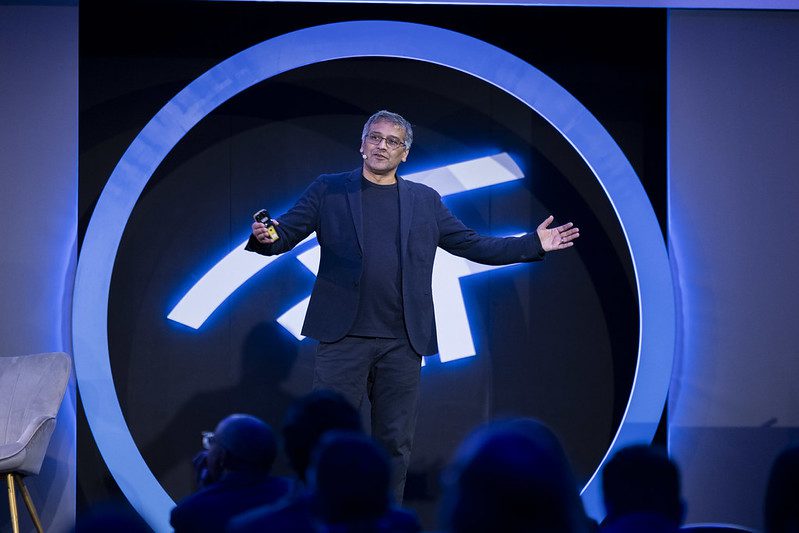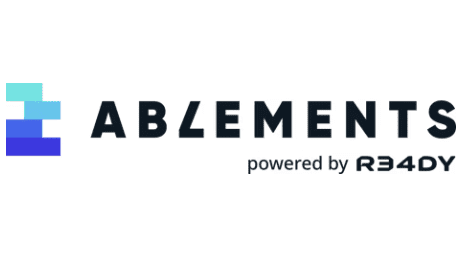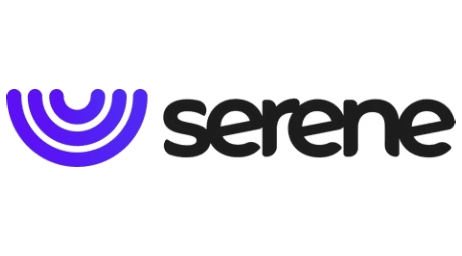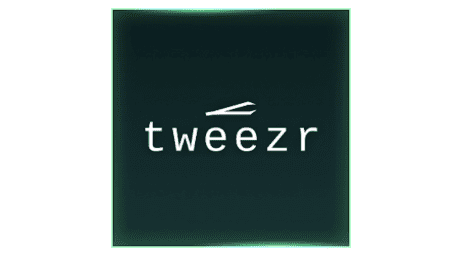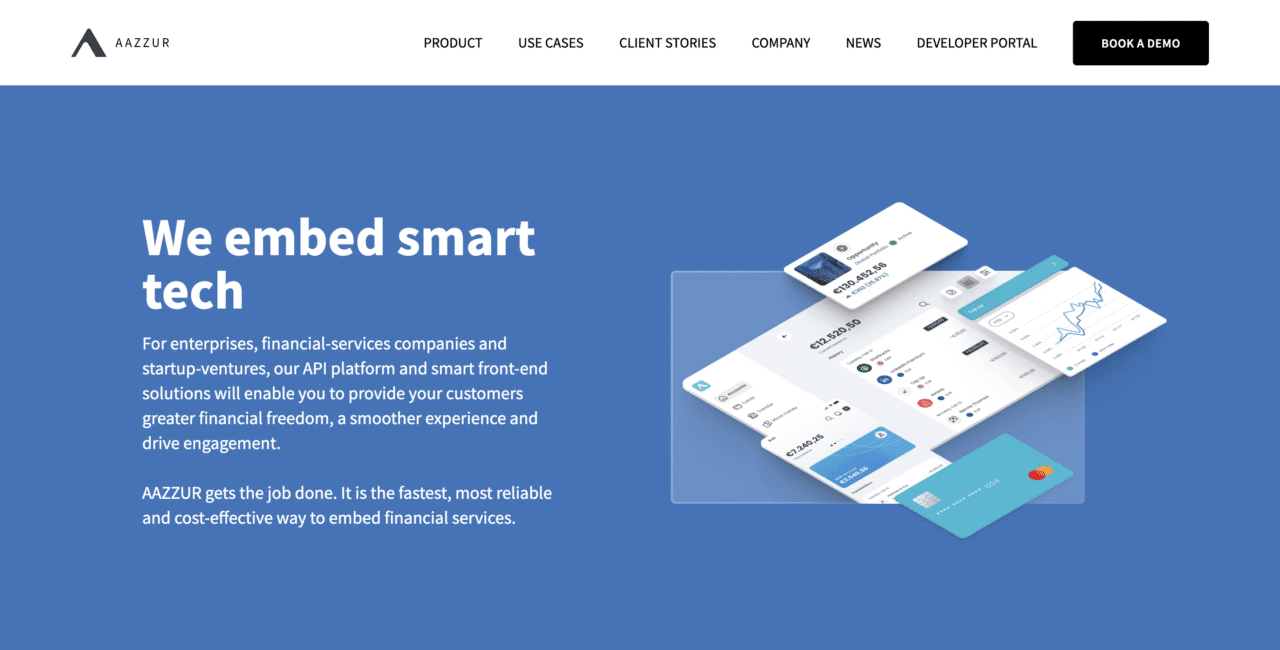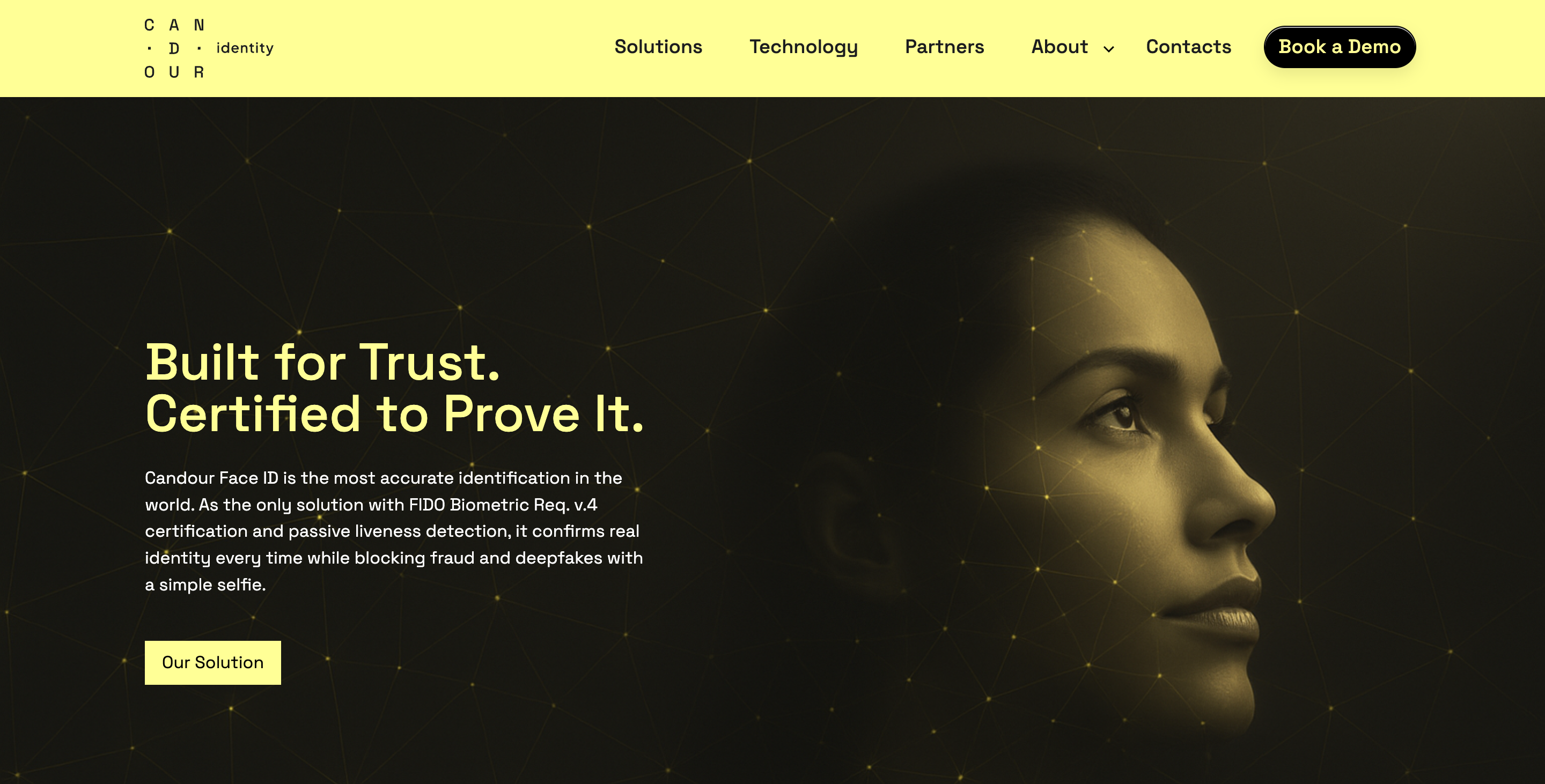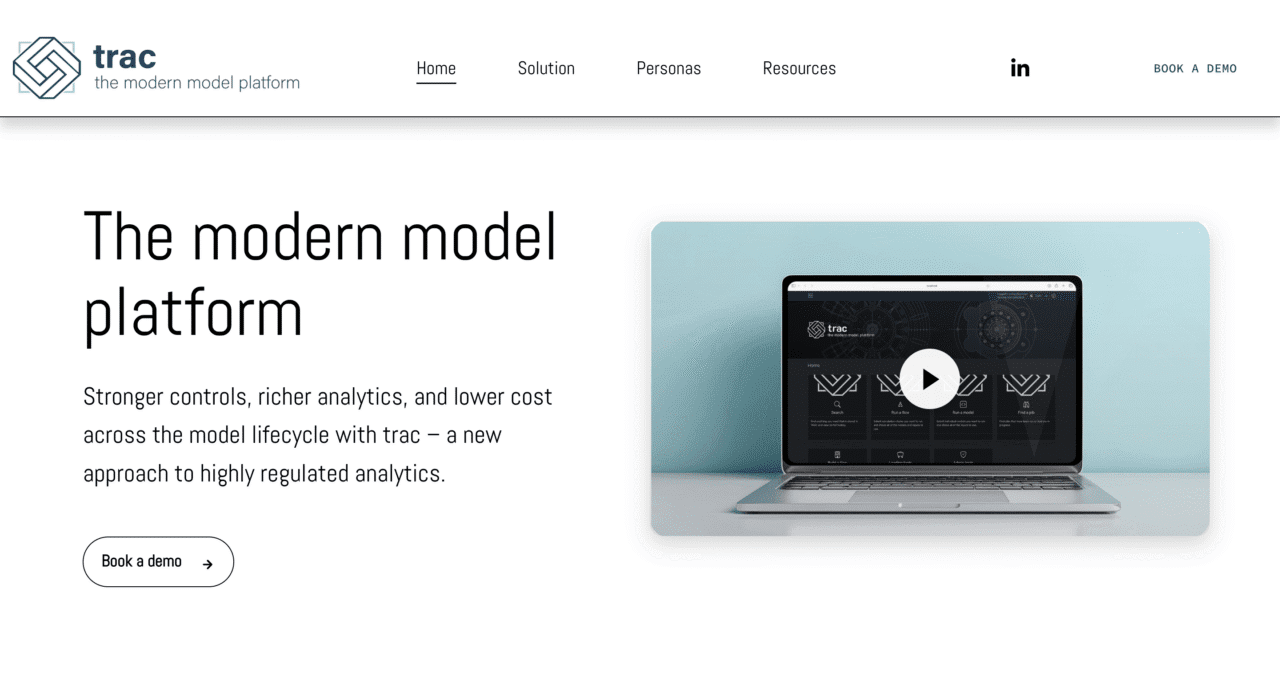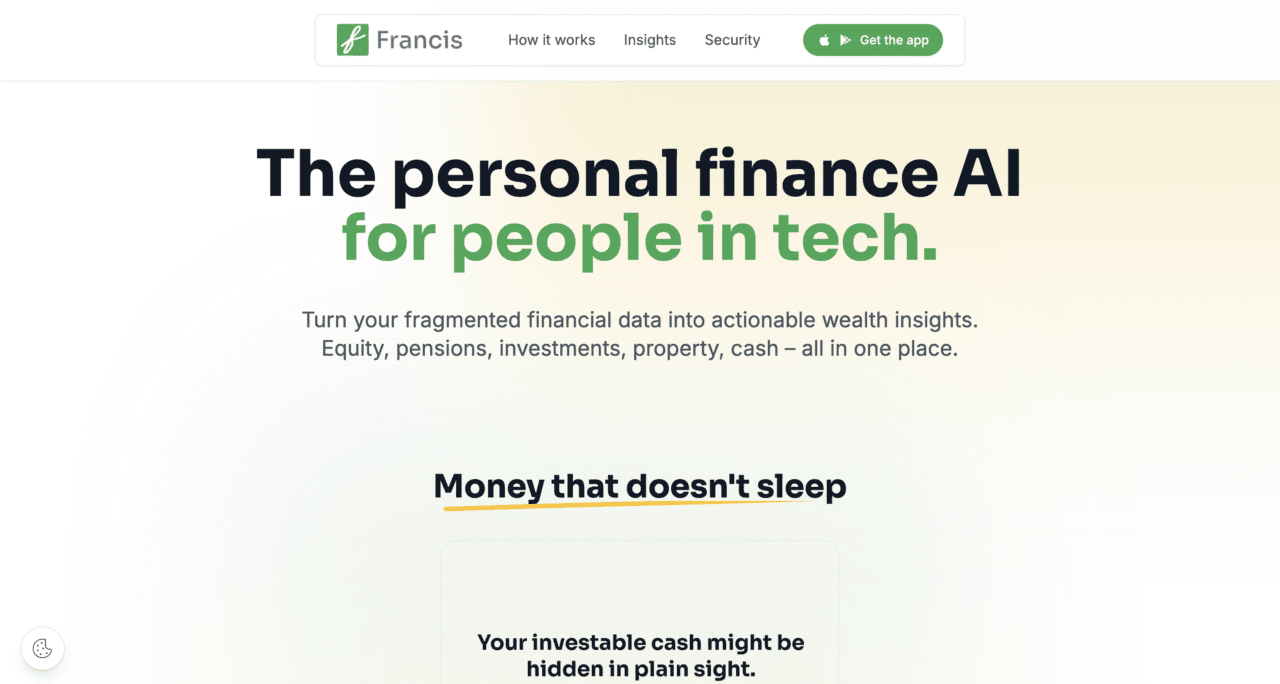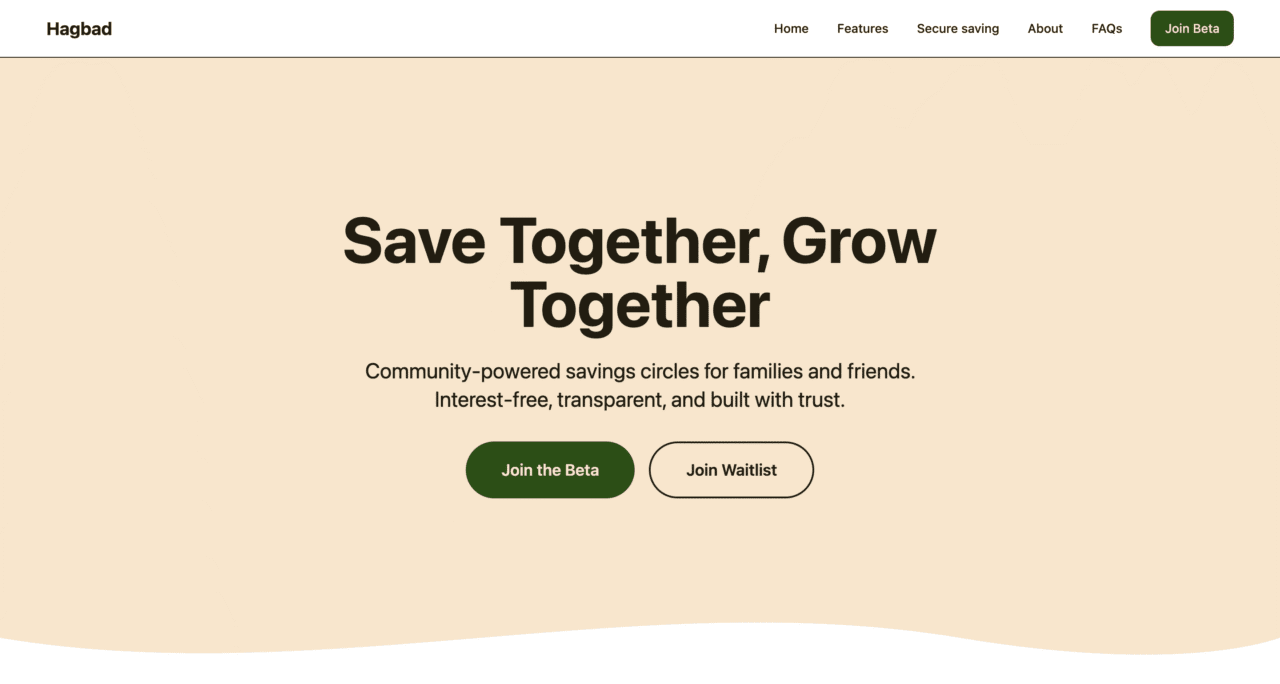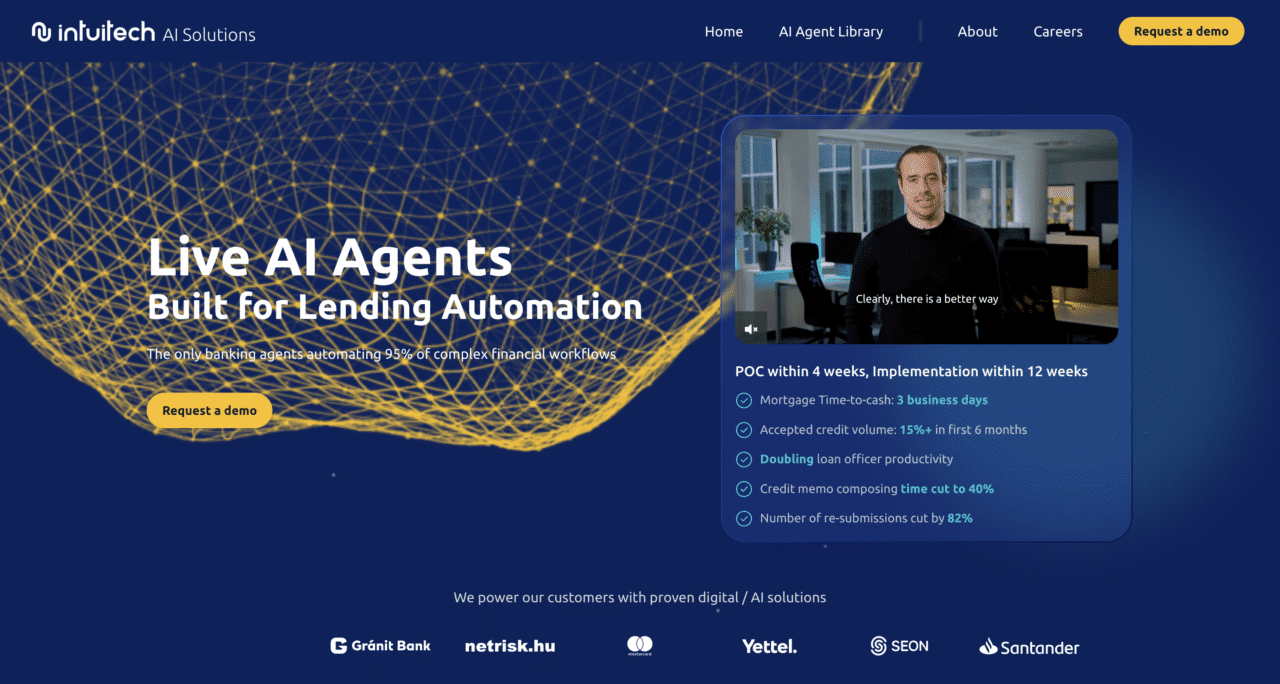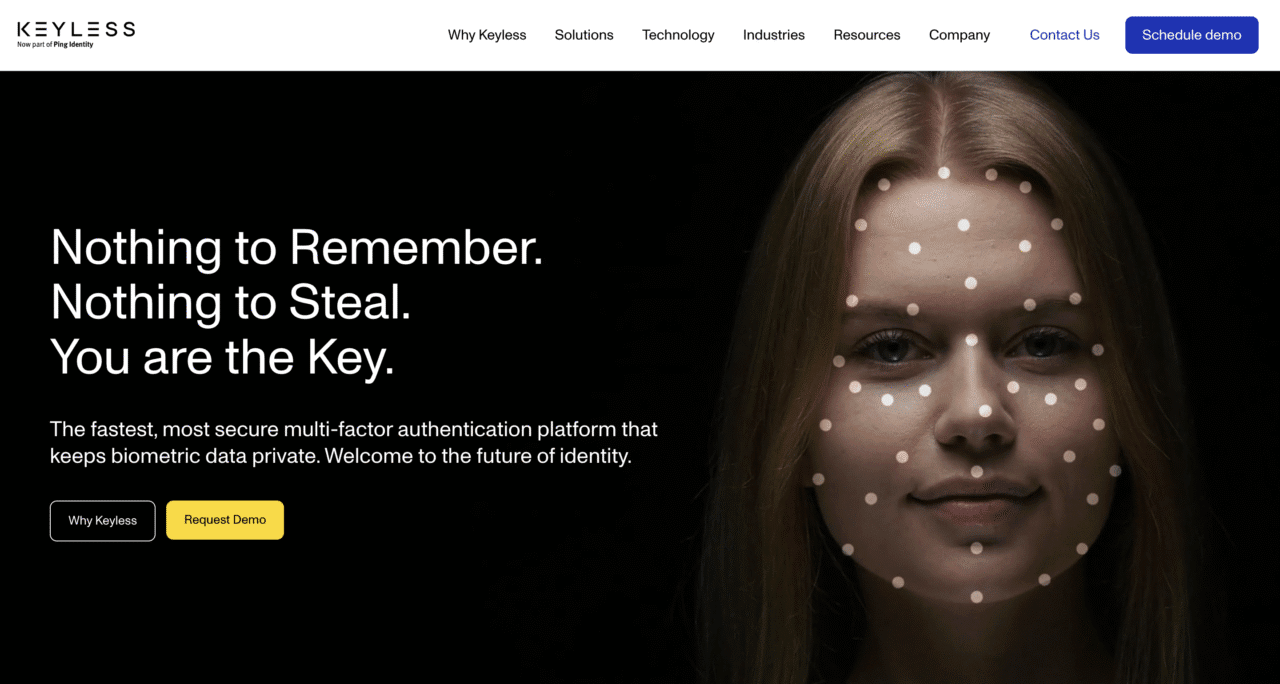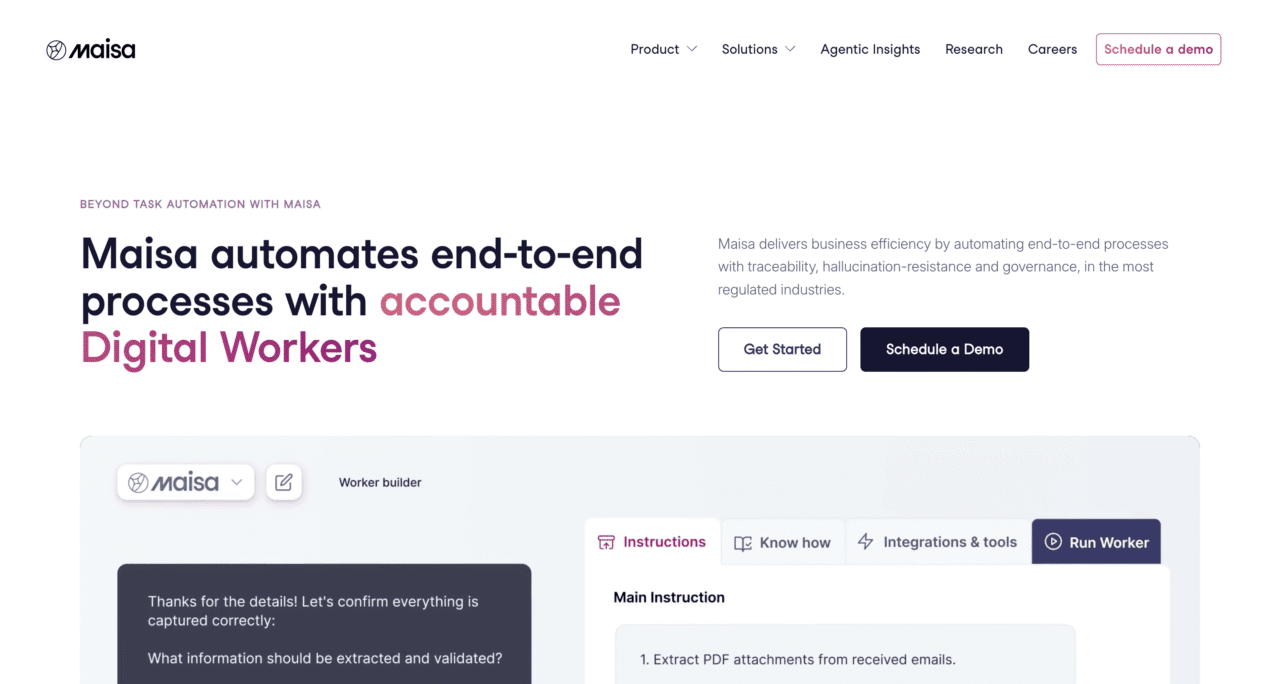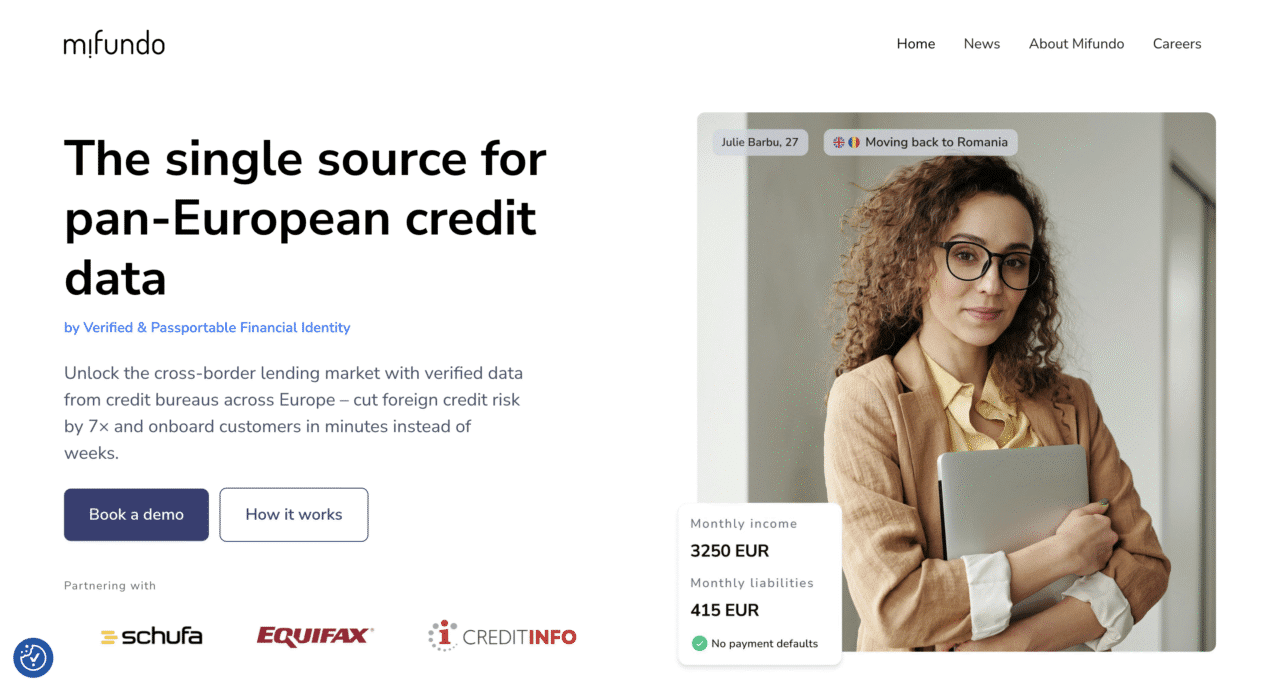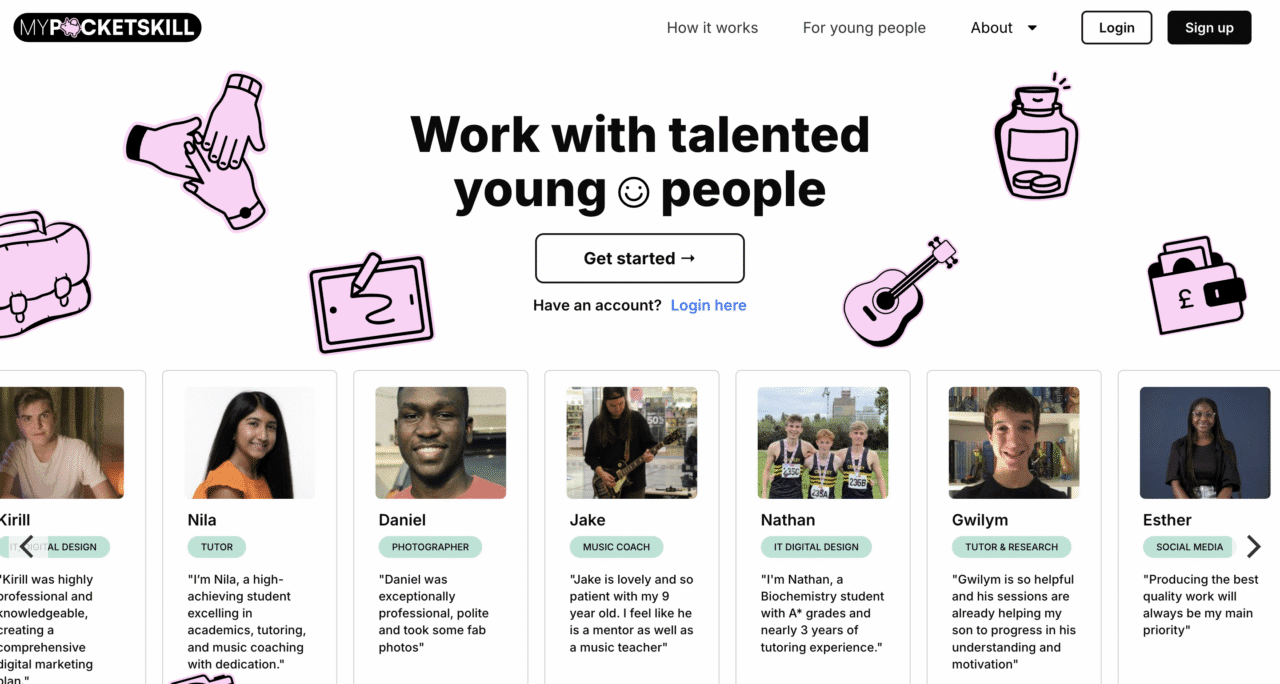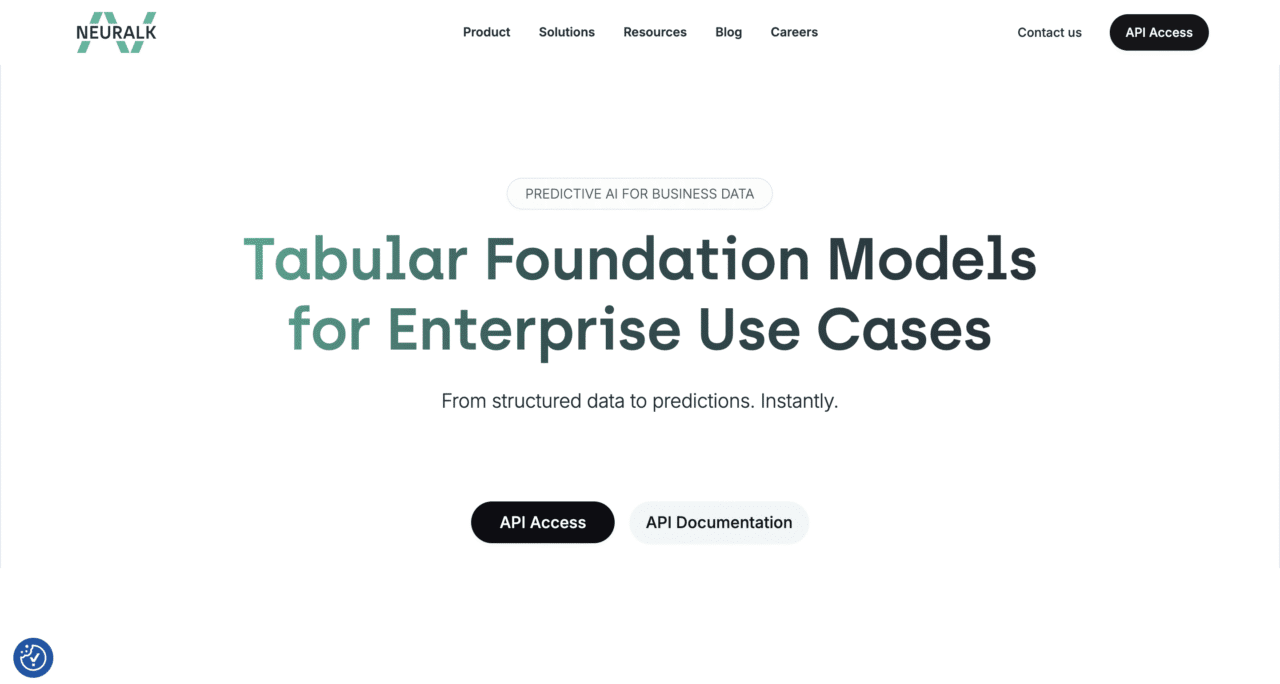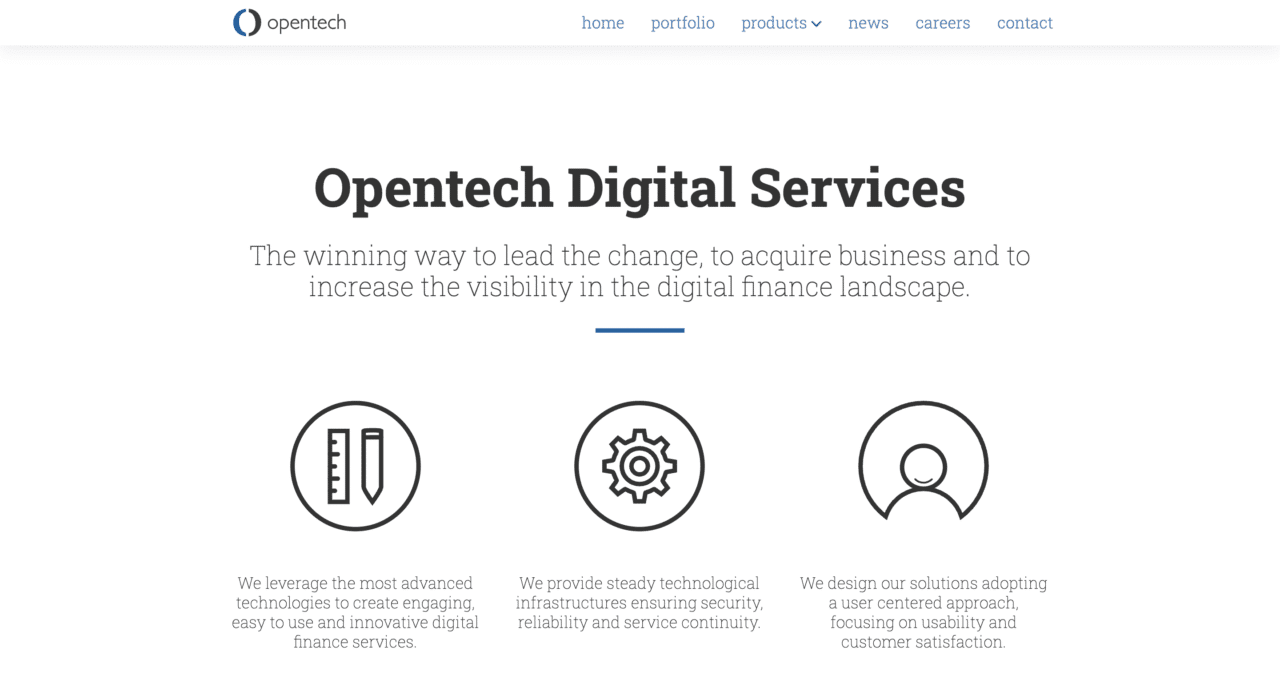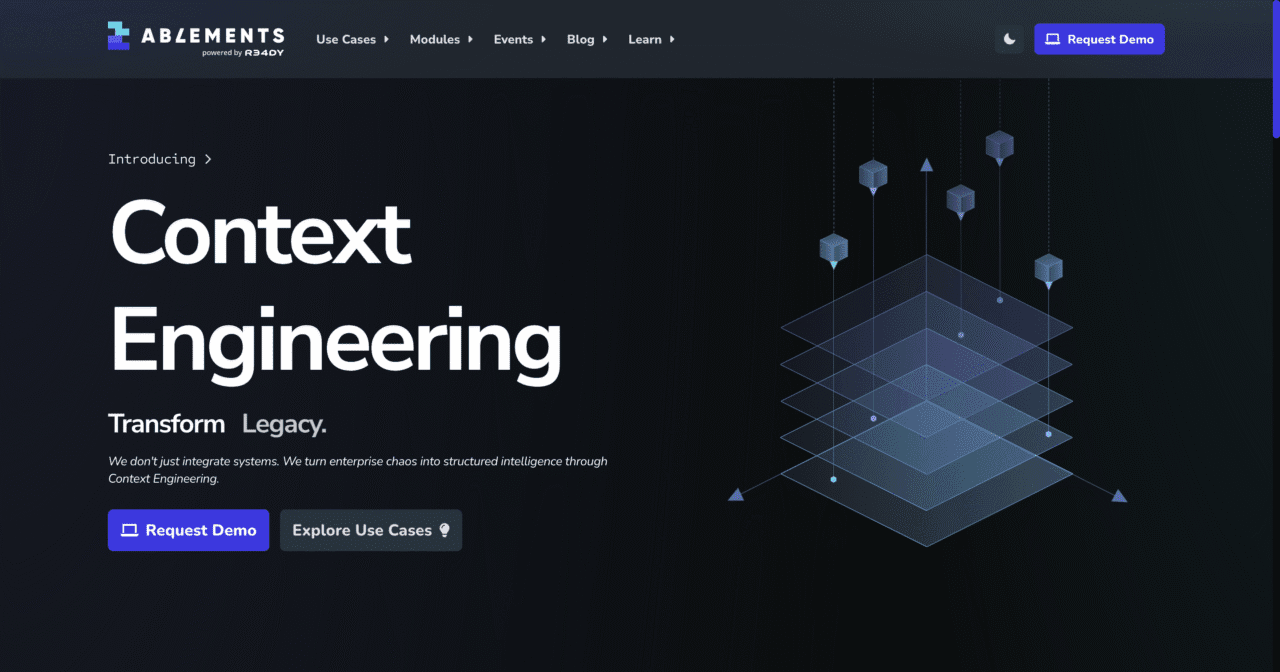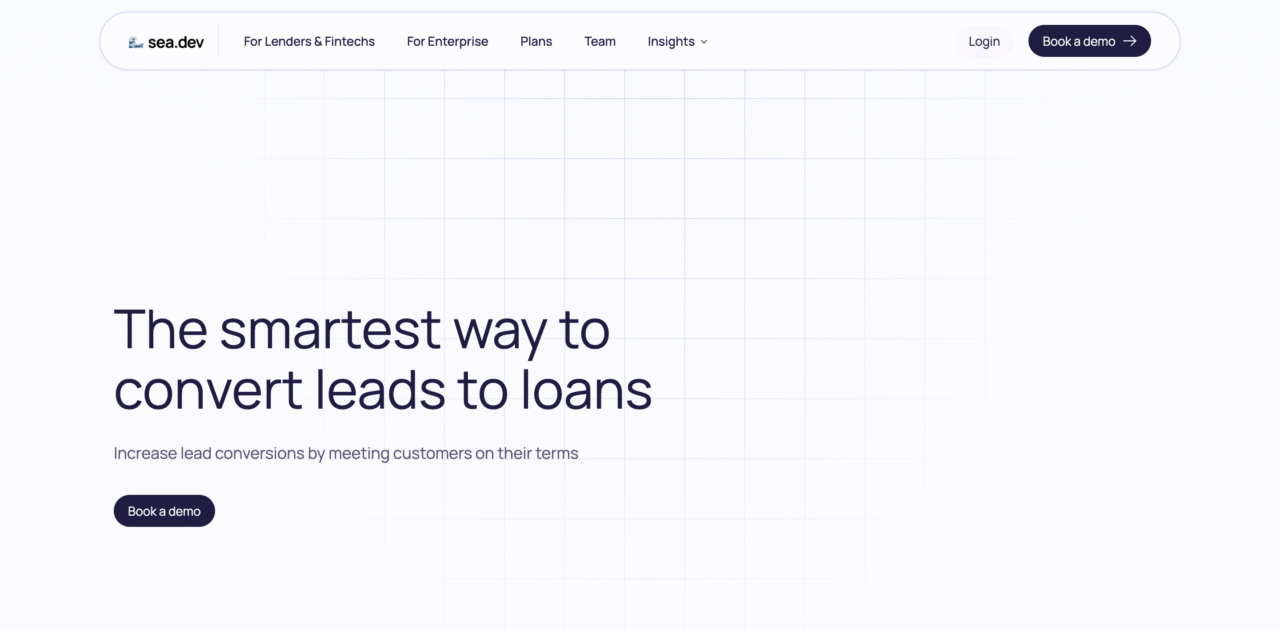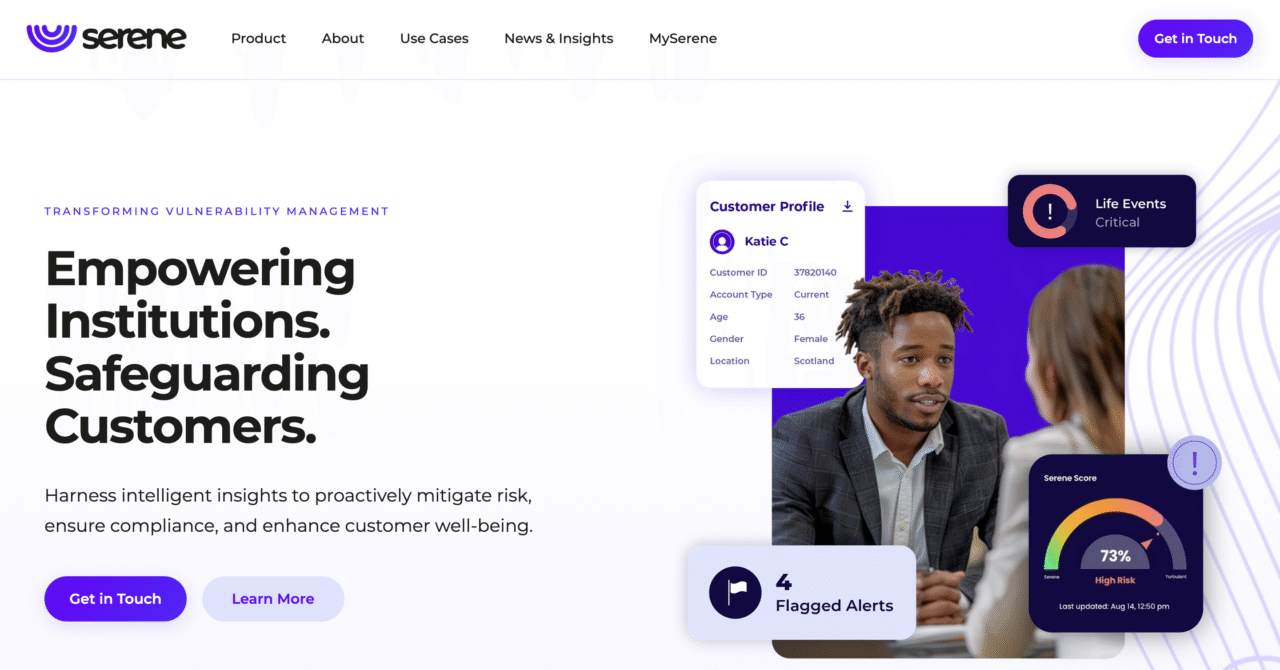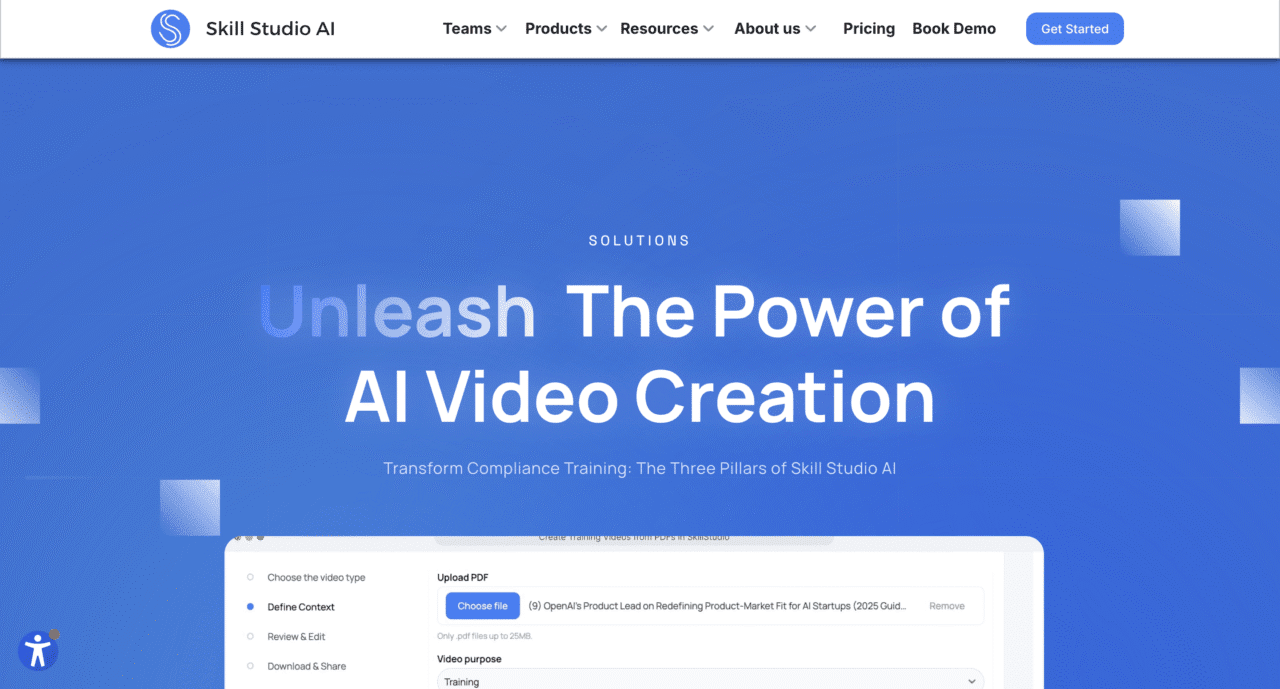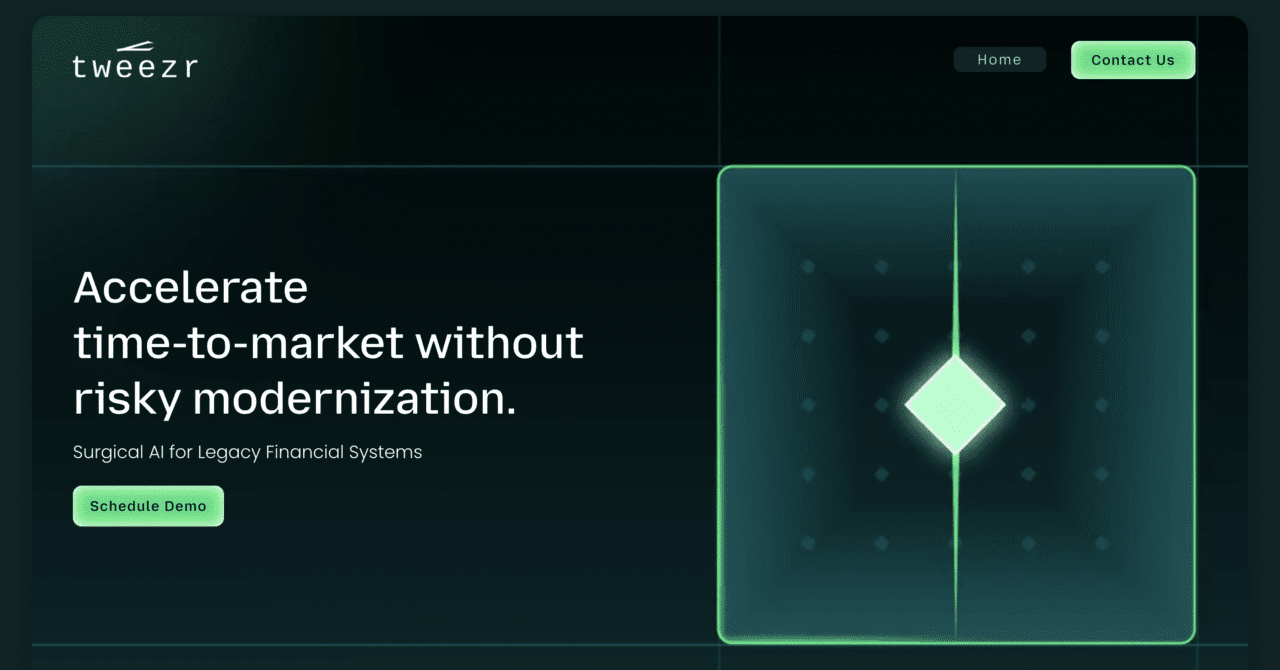
Great conferences are defined largely by what does happen: what themes are discussed, what trends generate the most passionate conversations. But great conferences are also defined by what doesn’t happen: by those topics and trends that have become exhausted, failed to live up to the hype in the first place, or simply aren’t ready for prime time.
Having just looked at some of the main topics of discussion at FinovateEurope, today we’re taking a quick tour through the pound to learn more about the dogs that did not bark at FinovateEurope 2026 last week.
Sustaining Sustainability in the Age of AI
Sustainability has been a stronger theme among fintech innovators in the UK and the EU compared to the US—and arguably all the more so given the fusillade of disincentives from the Trump Administration. Past Finovate conferences have showcased fintechs such as Connect Earth (UK), ecolytiq (Germany), and Little Blocks (India) that are helping institutions and individuals calculate their environmental impact; reduce carbon emissions via online marketplaces, and align their investing and banking preferences with their attitudes toward the environment.
While never a large fraction of the demoing companies at any given show, it was notable that no companies focused on sustainability on the demo stage. This likely reflects at least in part the shift in emphasis toward AI and blockchain-related innovations, especially as these innovations are increasingly moving from the experimental to real-world use cases. Even as these enabling technologies appear to be in their earliest stages, the fact that they already are responding to real problems in financial services makes them an especially attractive field for innovation compared to sustainability.
It is important to note that this does not necessarily mean that there has been a decline in interest in sustainability and climate-related fintech innovation. In fact, investment in climate-related fintech—and climatetech in general—increased from 2024 to 2025. Europe represented a significant amount of the $103 billion raised globally at 56%, with US-based funds contributing 16% toward the international total. But sustainability is increasingly being seen less as a standalone solution, and more as a cost-cutting feature to be integrated as in embedded finance or as part of a broader risk and data analytics package. Those looking for sustainability to return to the center stage will likely need to see the rise of stronger regulatory mandates such as those for stricter environmental financial disclosure or other incentives. Technological innovation alone may not do it.
Quantum Computing: Waiting for the Great Leap Forward?
While there was a sole presentation on quantum computing at FinovateEurope, the discussion of this technology still remains limited in most fintech forums. This is despite the conviction by analysts that quantum computing will make a significant impact on all technology—including financial technology—in the years to come. It is also interesting insofar as we are seeing emerging, enabling technologies in AI and the blockchain that continue to surprise detractors and outperform expectations when it comes to practical use cases. Why not quantum computing?
First, credit where credit is due: Day One of FinovateEurope featured Amal Nazar, Head of GTM at Wultra, a firm that provides post-quantum authentication solutions to financial institutions around the world. Nazar’s Special Address emphasized that it was important for banks and other financial institutions to transition to post-quantum cryptography in order to secure long-term digital operations. With regulators urging firms to complete this shift by 2030, it is clear that whatever conversations we are not yet having with regard to quantum computing will likely begin sooner than we think.
But not quite yet. Unlike AI and blockchain-based technologies like stablecoins, quantum computing is still significantly “pre-commercial,” meaning that while there is considerable investment interest, practical commercial applications in financial services have yet to materialize. There are a number of reasons for this, but essentially the issue is developmental (read: hardware) rather than software or regulation-related in the cases of AI and stablecoins, respectively. Arguably, when it comes to quantum computing, this technology as it applies to financial services is about where AI and stablecoins were seven to ten years ago: long on hype and promise, but short on use cases. Those use cases are developing; as Nazar’s presentation suggests, cryptography is one of the primary areas where we should anticipate quantum computing use cases emerging. But compared to AI and stablecoins, quantum computing may experience the “always a bridesmaid, never a bride” syndrome for a few more seasons, at least.
“Nobody Here But Us Cloud Companies …”
If you suspected that the inclusion of “cloud” as a theme that was underrepresented at FinovateEurope was little more than a ruse to talk about AI, then I confess to being guilty as charged. But the comparison between the “cloud revolution” and the “AI revolution” was one I heard from Finovate delegates and on-stage experts alike, and an interesting notion to add to this conversation on fintech trends.
No company demoing declared themselves a cloud company this year. That’s because, in a sense, they are all “cloud companies.” The ubiquity of cloud technology in fintech has rendered the descriptor almost obsolete. And increasingly something similar is happening with AI. While we did go through the obligatory period when companies felt the need to append “ai” to their names, we are nevertheless seeing an impressive urgency with which companies are seeking to leverage AI to improve efficiency for both their own workers as well as for their customers. Perhaps not since the early days of digital banking has as much attention been paid and innovation devoted to both sides of the customer experience at the same time.
What this means, as Senior Finovate analyst Julie Muhn remarked to me in the run-up to FinovateEurope this year, is that there is less and less a conversation about “AI,” and more and more a conversation about generative AI, or explainable AI, or agentic AI, or ethical AI … You get the point. The evolution in our way of talking about AI reflects nothing more than our growing understanding of the diverse ways AI technology can be deployed, as well as the myriad responsibilities involved in deploying it. So while we won’t stop hearing about “AI” anytime soon, we should be prepared for a new way of talking about the technology as our relationship to it evolves.
Photo by Anoir Chafik on Unsplash


